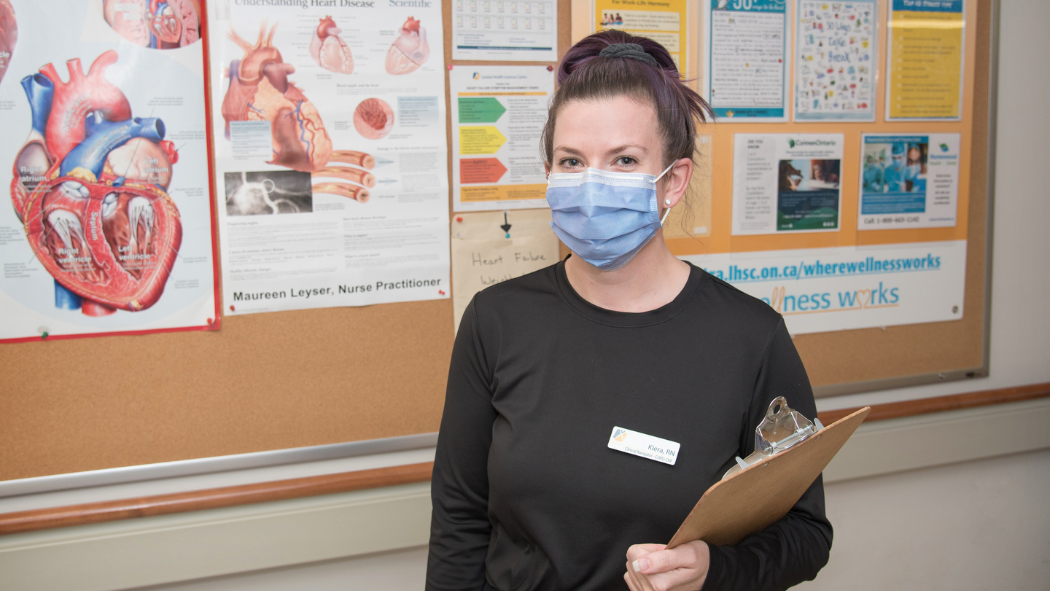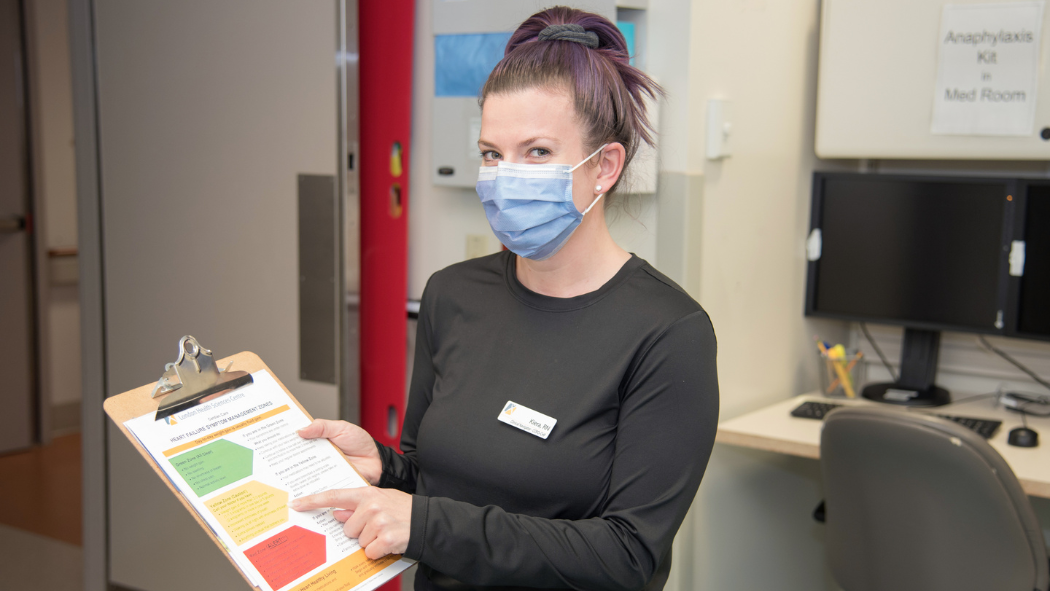
May 5, 2023
Bridging the gap between hospital care and community resources is an important approach to reducing readmissions and promoting self-management of chronic illnesses such as heart failure.
And that is the purpose of the Connecting Care to Home (CC2H), a 30-day program providing support, education and monitoring for patients admitted to hospital with heart failure, that is a partnership between the London Health Sciences Centre (LHSC), Community Care Support Services - South West and VON.
With approximately 12,000 people afflicted with heart failure in the Middlesex-London area, it is crucial to help patients navigate the system to access the care needed once out of hospital. As Canada marks National Heart Failure Awareness Week May 1-7, 2023, LHSC's clinical navigators explain that their role is to improve the discharge process for patients and teach them how to manage their chronic illness to prevent flare-ups that could result in a trip to the Emergency Department and possible readmissions to hospital.
"We work with the specialist teams to identify patients who would benefit from this program and self-management," says Nicole Snyder, a clinical navigator. "While in the hospital, the clinical navigators will assess patients for appropriateness, provide education, and review the program and work alongside community partners to navigate patients through the health care system."
Working with a patient's Home and Community Care Clinical Care Coordinator to ensure a smooth and safe discharge home, the navigators also provide continued communication with the patient's health care team. Patients can also access a 24/7 contact number for support and to help avoid needing to go back to the hospital.
Heart failure is a potentially life-threatening progressive heart disease that affects the pumping action of the heart muscles, causing fatigue and shortness of breath. According to Ontario Health, nearly 12,000 individuals over the age of 20 have heart failure in the Middlesex London Ontario Health Team area, representing 2.9 percent of the population.
The CC2H program, which also supports those with chronic obstructive pulmonary disease, provides patients with round-the-clock phone support and is just one example of how LHSC and its partners work together to improve patient experiences and outcomes.
"At the end of the program many patients say they found it very helpful or that they've learned a lot about their disease and how to manage it with the knowledge and tools we provide them. They feel like they've gained improved quality of life," says Kiera Belletti, another heart failure navigator.
Between 2019 and 2020, LHSC had nearly 8,000 admissions of patients with heart failure, with an average length of stay of 11.6 days, and more than 12,000 Emergency Department visits. Data shows the integrated patient care between hospital and home which is enabled by enrollment in the CC2H program, improves patient experience, clinical outcomes and provider experience as well as decreasing the length of hospital stay and readmissions within 30 days, according to Mia Segal, manager of data quality and quality improvement for the Cardiac Care program.
"LHSC is committed to continuing to advance the program and link it with other community partners to support keeping patients from returning to the hospital," she says.

